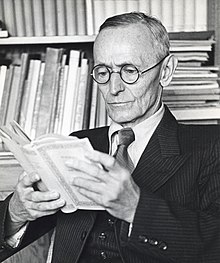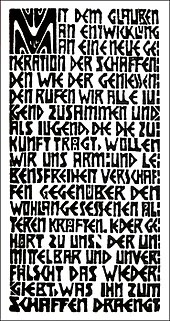2020.3.23
瑞士資訊中文網 swissinfo.ch瑞士感染人數增長迅速,3月23日截稿前聯邦公共衛生部門公布的最新疫情數據:病毒檢測陽性人數為8060人,死亡患者66人。
為了幫助鄰國法國緩解醫療壓力,瑞士醫院3月22日宣布將接收6名法國新冠病毒感染重症患者。接收單位分別為巴塞爾州的兩家醫院和汝拉州的一家。每家醫療機構將收治2名法國患者。
【瑞士目前的情況如何?】
非常嚴峻。瑞士正在經歷新冠病毒的大暴發階段。新增病例每天都在高速增長。全國每天可進行的病毒測試數量從之前的2000增長到7000。
瑞士意大利語提契諾州每10萬居民中:新冠病毒感染病例達到260例,死亡患者37人。疫情十分嚴峻。
日內瓦州衛生部門3月22日公佈,該州死於新冠病毒感染的患者人數為13人,其中6人死於最近兩天之內。日內瓦大學附屬醫院目前收治有36名重症患者,全部在使用呼吸機。該州未來幾天的防疫形勢將極為緊張。
图为瑞士卢加诺Moncucco医院的分流帐篷。该医院是瑞士接壤意大利边境提契诺州两个用于治疗新冠病毒患者的医疗中心之一。
3月24日最新疫情數據:瑞士新冠病毒檢測陽性人數為8836人(確診人數比上一日增長近1000人),死亡患者人數升至86人。
- 全國2.7萬家企業申請了“部分失業”(短時工作)補助申請。在提契諾州,企業申請比例達到29 %.
- 目前提契諾州已進一步進一步加強了病毒防控措施,而該州的情況也正在惡化,感染人數發展曲線呈現提契諾州態勢。
- 疫情最嚴重的提契諾州禁止65歲及以上年齡段居民出門,包括購買食品的外出。
- Verbier滑雪場可能是很多病例的感染地。
- 瑞士外交部將於本週將組織目前身處南美洲的600多位瑞士公民歸還瑞士。
- 目前聯邦聯邦立法尚未禁止任何人出門,但禁止超過5人的聚會,違反了規定的人員將受到100瑞郎的罰款。
- 禁止5人超過聚集的規定相同適用於工業區及建築工地。
瑞士國家除超級市場,藥房,加油站以及郵局和銀行櫃檯外部,其他所有場所均應關閉。
- 政府要求公民盡量不要使用現金。
Hermann Hesse Museum | ticino.ch
www.ticino.ch › commons › details › Hermann-Hes...Discover Hermann Hesse Museum in Ticino, the Mediterranean soul of Switzerland. Small moments, a great experience.
Hermann Hesse | ticino.ch
www.ticino.ch › commons › details › Hermann-HesseThe years in Ticino were stimulating and involved importantmeetings for Hesse: his guests included Brecht, Thomas Mann and Kerényi. His civil and literary dedication earned him the Nobel Peace Prize in 1946. Hesse died in Montagnola in ...
2013.9
- 作者:赫曼.赫塞/著
- 原文作者:Hermann Hesse
- 譯者:陳明哲
- 出版社:天下文化/人民文學
- 出版日期:2001年 /2013
在農園裡,一切生物原本有限的生命週期,總要比在其他地方顯得更短促、更一目瞭然,也更容易洞察。農人不將垃圾的凋萎、崩解和腐爛視為無關緊 要,而是仔細守護,不輕易糟蹋。陽光、雨水、霧露、空氣與低溫使堆肥分解,最後所有動植物的殘骸回歸土壤,使之色澤黝黑,肥沃而營養;沒多久,胚芽便從穢 污與死亡中誕生,在那清新、美好的姿色裡,腐敗與分解再度還原為力量。
這樣簡單明瞭的循環過程,我們人類卻一再困而思之,各家宗教也說得玄之又玄,殊不知每個小小農園都有顯而易見的輪迴現象,不動聲色地快速進行著。沒有任何一個夏季的繁盛,不是受惠於去年先死者的滋養;沒有任何一種農作物最後不是化為糞壤,一如它當初從土裡萌生。」
赫曼.赫塞在有生之年的泰半歲月裡都擁有自己的農園;就像寄情於繪畫一樣,戶外勞動對他而言,也是避免案牘勞形、調劑寫作生活的養生活動。誠如他所說 的,這項「假性勞動」是他「逃離紙張天地的避難所」,同時對他的靈感思緒、沈思默想與內省也裨益良多。赫塞習慣詳記一切生活體驗與觀察,並且發為心性的觀 照與詩歌的吟詠,因此在園圃勞動中,他同樣也把自己俯仰於大自然,與觀賞植物、食用作物、花卉、灌叢和樹木之間的和諧互動,以及這些植物的成長、改變和四 季的變化……等,全載諸文字。
本書首度彙集其有關「自然與人生」的哲思詩文,搭配豐富的珍貴照片及詩人手繪的水彩畫作,獻給熱愛生命的讀者。
目录 · · · · · ·
园圃春望
九月即景
故园忆往
回首青春岁月
外在世界的内心世界
寄语舍弟
忆博登湖畔故居
花的一生
风雨过后
花朵亦不幸免
龙胆花
暮色中的白玫瑰
石竹花
花香八帖
先春之花
草原闲卧
树木的礼赞
修枝后的栎树
告别博登湖
古园惊梦
老树的挽歌
植树日志
遗失的一把小刀
夏季的尾声
对比
花梗
百日草
临秋感怀
夏秋之交
承担一小块土地
园圃时刻
桃树
园丁的梦
田园将芜
耶稣受难日
日记页
如同失落的故乡——散见于黑塞书信中的园事随想
狮子的哀求
致友人的园事小记
千年之前
梦中的家
鸢尾花——一则寓言
后记在园圃中栽植诗意与哲思
2013.3 重買一本二手書再詳讀之. 譯筆很好Canton Ticino or
Ticino (
Italian pronunciation: [tiˈtʃiːno];
German:
Tessin [tɛˈsiːn];
- 導讀 人文的捍衛者--赫曼.赫塞 劉永木
- 前言 生命當如是赫塞的堤契諾歲月 孚克.米榭爾思
- 在堤契諾重生
- 山隘
- 山村
- 農莊
- 午歇
- 紅屋
- 羅卡諾之春
- 南方夏日
- 暢飲秋之森林
- 冬日,寄自南方的一封信
- 在阿爾瑟紐
- 屋舍.田園.圍籬
- 堤契諾的教堂
- 小徑
- 為谷中工廠作畫
- 堤契諾夏夜
- 暮色中的屋容
- 湖岸
- 南方之夏
- 夏日黃昏在堤契諾森林酒館
- 昂格羅的聖母
- 漫步暮色中
- 詩人黃昏所見
- 深秋獨步
- 羅卡諾
- 遙望義大利
- 暮靄
- 畫者之樂
- 水彩畫
- 日正當中
- 夏日終曲
- 雷雨前的一瞬
- 秋天--自然與文學
- 早春的湖谷
- 與妮娜重逢
- 風蕭蕭之夜
- 返鄉
- 五月粟林
- 色彩魔術
- 作畫
- 悼老樹之死
- 眺望谷中之湖
- 對比
- 百日草
- 盛夏
- 我的鄰居馬利歐
- 紅亭
- 屋中漫步
- 入秋
- 夏末
- 夏秋之際
- 老公園
- 堤契諾秋日
- 一九四四年十月
- 桃樹
- 清煙囪的小工人
- 堤契諾之冬
- 對堤契諾的感謝
- 一九五五年日記二則
- 清晨時分
- 蒙塔娜拉四十年
- 秋雨
- 南方陌生之城
- 鳥
- 一個堤契諾人的故事.
..
《堤契諾之歌》生命當如是 — About 赫塞 ~
赫塞 半生歲月在瑞士南部渡過;四十二歲以後,他便在此定居。從《克林索》到《玻璃珠遊戲》(Glasperlenspiel),幾乎所有他的小說均在此地誕生,而這些作品也奠定了赫塞在世界文壇的地位。
第一次世界大戰造成的人間煉獄,帶來了內在與外在的壓力,讓赫塞面臨極大的衝擊與改變,這一切,幾乎令他承受不住。赫塞曾主編文化政策性刊物 《三月》(Marz)達五年之久,這是一本對抗普魯士王朝的傲慢與軍國殖民主義霸權的刊物,但並未成功,赫塞因而舉家遷離威廉二世統治的德國。直到第一次 大戰時,他才能將「政治的德國」以及「家鄉」和屬於「語言文學的德國」區分。赫塞一生之中,從未曾像當年那般義無反顧,在極短的時間內,從一個志願從軍者 轉變而成反戰者;他幾乎完全壓抑個人的詩人本質,成為記者、編輯、文化批評者,以維護他心中的德國,並對抗政治人物所標榜的德國,也因此,他被貼上「叛國 賊」、「吃裡扒外」的標籤,聲名狼藉。然而,他藉由實際的工作,證明自己的文化事業是正確的,同時,更成立了戰俘輔導中心,並自行編輯、發行慈善雜誌;為 了不受德國當局干擾,他使用了別名,以繼續他的慈善事業,並針砭時事。
然而,這折磨人的奮鬥不久便毀了他的個人生活,使他原本就岌岌可危的婚姻雪上加霜。於是,他與妻子先後接受了心理治療。
■藉創作紓緩痛苦
藉由文學創作,赫塞暫時紓緩了痛苦;一九一七年秋天,他如火山爆發似地,在短短數週內將小說《徬徨少年時》(Demian)一氣呵成,使得他在 伯恩瀕臨斷炊的生計,以及從事社會政治關懷的戰俘中心,得以維持近三年之久。但就長期而言,只有徹底改變生活環境,對他才有所助益。將近十五年來,他努力 將藝術家本質與中產階級的生活方式(身為丈夫、一家之主及不動產所有人)合而為一,但事實證明,這只是他一廂情願的想法。當時他仍是德國公民,覺得有義務 參與政治,並照顧為無意義的戰爭犧牲的同胞;他的所作所為雖值得敬佩,但這一切只是出自於責任感的無奈行動。其實,他毋須為這個政權負責。他真正能負責的 (這是他在這艱困的幾年中學到的),只有自己能掌握、能塑造的東西,以及與自己本質相互呼應的東西,即使這些東西並不為當時多數人所期待、所追求。
一九一九年,當赫塞結束了在伯恩戰俘輔導中心的專職工作時,他的妻子已在蘇黎世附近的一家療養院住了半年。當時,他的兒子分別是七歲、九歲及十 三歲,寄養在朋友家及孤兒院的附屬學校,赫塞自己則渴望奔向南方。一九○五年,他從瑞士東部徒步來到孔默湖與盧加諾,初次接觸阿爾卑斯山南麓地區,他立刻 感覺自己與此地聲氣相投,同時被此地的風景及生態所感動。
一九○七年四月,此時赫塞已近三十歲。他再度來到此地,在一所自然療養院工作,這只是一個暫時性的工作。療養院由一名工業家之子所創立,在這殖 民地上住著一群遁世隱居者,他們滿腔熱忱地實驗新的生活方式,以對抗威廉時期不可一世的市儈。他們研究新的生活模式,抗拒工業對生命的摧殘、抗拒科技對大 自然的破壞。赫塞在此停留了三個星期:「素食、戒酒、陽光、空氣,如此簡單、舒服的方式,治療了我受傷的文學神經。原先,我曾失去本能,而那種相信意志自 由的本能,對我而言是不可或缺的。但此地使我慢慢地、舒服地恢復,貼近普羅大眾最原初的心境。」當時,他在給慕尼黑和巴塞爾的朋友的明信片上這麼寫著。這 些聽起來比他當時真正的心境快樂多了。值得我們注意的是,他影射自己失去了不可或缺的意志自由。同時,其他的信與談話也證明,雖然蓋房子有其必要,但本質 熱愛流浪的赫塞,卻對開始興建中的自宅感覺不安、膽怯。
漸漸地,家中人口愈來愈多,慕名而來的訪客也多了起來,成名的赫塞覺得不勝其擾。他的生活圈子日益擴大,愈來愈接近中產階級的生活,這使赫塞不 快樂,讓他興起一個念頭——在房子蓋好之前,趕緊試試隱士般無欲的生活、與定居相反的生活。此外,叔本華和許多關於佛家苦行僧的書,也助長了這念頭。於 是,他搬到蒙維利特,住在野外一幢木板屋裡,處於半飢餓狀態達七天之久,同時將自己半埋到土裡,試試泥土的療養功能。他覺得自己好像快「僵硬了,快要長出 根,並回到植物、礦物的生存方式。」他在〈野人札記〉(Notizen eines Naturmenschen)中如此記錄當時情況。但這種實驗所帶來的心靈上的收穫,其實極為貧乏。
■邂逅堤契諾
一九○七年,他在堤契諾停留,但當地獨一無二的風景並未引起他的注意。那時他正自顧不暇。九年後,大戰如火如荼,父親又剛過世不久,赫塞再度來 到瑞士南部,停留了十四天。此時,他的內心更悲傷,眼中看見的世界更顯灰暗。一九一六年四月十四日,他在羅卡諾旅館寫信給畫家朋友恩思特.克來朵夫:「在 這裡雖享有安寧、溫暖的夏日,但內心卻不平靜。」他說:「我先前失去平衡,自從猙獰的大戰以來,更是每下愈況……陽光、茶花、散步無法治癒我。這些都是自 欺欺人。」
回到阿爾卑斯山北麓三天後,他開始接受心理治療。他將心理治療比喻為「狹窄的地獄隧道」:「穿過隧道、到達彼端時,就是蛻變過的自己;心靈經過 撫慰、解析,又覺得舒暢。」他花了三個月的時間,來穿過這個狹窄、地獄般的隧道。然後,他再度置身於阿爾卑斯山南麓的陽光中。突然間,他眼睛為之一亮。一 九一六年九月,他在給歐特.布牡爾的信中寫道:「我不知道,是否你認識堤契諾的風景。這樣豐富、美麗的風景,從阿爾卑斯山一直延伸到最南端,但一切給人的 印象,卻不是甜蜜而柔軟的,反而是強烈而苦澀的。最美、最豐富的,莫過於綿延至山上的栗樹林、長滿樺木的斷崖,以及阿爾卑斯山脈。有一次,我迷了路,繞了 一大圈來到阿爾卑斯山上,在森林中、野蕨叢中走了二個多小時,突然間幾座石砌小屋出現眼前……其中葡萄蔓生。千山萬谷,亮綠的溪水洶湧湍急。」
此後,只要戰俘輔導中心的工作情況允許,他回便到瑞士南部待上幾個星期。有一位精神及心理醫師的太太海德卡.揚格—新生(Hildegard Jung-Neugeboren),在羅卡諾的蒙堤有幢避暑豪宅,專門款待藝術家,因此,赫塞也在那兒找到落腳處。一九一六至一九一八年期間,他在那兒住 過四次,總共待了十二個星期,寫下了堤契諾札記《漫遊》(Wanderung),並在動筆寫《徬徨少年時》之前,開始作畫。儘管早期在《漫遊》一書中的風 景插畫過於純真、幼稚,但卻可看出赫塞的心理變化;他與往日已漸疏遠,不再一意孤行地以新方式掌握新事物。
隨著大戰結束,赫塞更加義無反顧。一九一九年四月,他將戰俘輔導工作及創辦的雜誌畫上句點,結束了以盈餘幫助兒童的籌備工作,並封閉了在伯恩的 房子。大戰前,他才在一篇作品中將那房子描述為「夢想之屋」,如今它卻已成為夢魘之屋。「寧願當個怪人、流浪者度過半生,也不願犧牲心靈,當一個盡職責的 紳士。」他在給羅卡諾的楊格—新生的信中這麼寫著。
■第二個故鄉
他最想在堤契諾等地區的原始岩石、樺樹荒野中定居。於一九二七年的〈紐倫堡旅記〉(Nurnberger Reise)中,他寫道:「除了出生地黑森林之外,只有在羅卡諾一帶,才覺得這是此生中真正的故鄉。」
他開始在盧加諾南方找房子。一九一九年五月初,他在附近的山村蒙塔娜拉發現,「高貴的廢墟」卡薩.卡穆奇有一幢古老、巴洛克式的貴族房屋,房中 有四個房間要出租。論舒適,這裡遠不及他在波登湖及伯恩的房子,但這幢房子的優點,卻足以彌補其他的缺點。它位於盧加諾湖的半島上,美麗無以倫比,其視野 穿越如叢林般的繁茂植物,可遠望蓊鬱山丘環繞的谷中之湖。他那位於波登湖畔、人煙罕至的房子,可以眺望波登湖西岸的瑞士,如今,他在堤契諾的房子,同樣 地,也可由瑞士遠眺義大利。
新環境美侖美奐,但房子本身,以及詩人的財務狀況就無法相提並論了。戰敗的德國開始通貨膨脹,一九二三年年底達到最高峰。身為作家,赫塞從未遭 遇一貧如洗的窘境,而除了自己以外,他還得負擔分散各地的家人——三個兒子的生活費及妻子的醫藥費。即使他變賣了大部分的藏書,依然只能短暫地維持。如果 不是瑞士友人波德摩(H. C. Bodmer)及喬治.藍海(George Reinhart)資助兒子寄宿學校的學費及妻子的醫藥費,赫塞絕對撐不過那幾年。至於他自己,則儘量節儉。曾有一位老師請求赫塞送他一張照片,赫塞於一 九一九年九月十八日回信:「我們這些住在外國的德國人,早已不照相了。如果每天有一塊麵包可吃,有一條小小的縫線縫補褲子的鬚邊,那麼就非常滿足了。」
生活貧困的時期,也是他空前的創作高峰。如果天下太平,辛勤耕耘之後就能享受收穫的話,那麼赫塞當時也會成為有錢人。他在八個星期內創作了兩部 長篇小說與最好的詩作,這還不包括無數的書評、短文,以及幾百幅的水彩畫。多年來積壓、蘊釀的創作慾,此時開始迸發,他的文字充滿新的力量,強而有力。
赫塞到堤契諾四星期後,便寫完了小說《克萊恩和華格納》(Klein und Wagner),他想藉由小說的書寫,一掃自己家中的悲劇的陰影。他開始從內心中一步步重建被毀壞的世界:「如果一株植物被折斷或枯萎,」同一個月,他寫 給姊姊阿德勒的信中說:「那麼它會趕緊結出種子,因為這正是它生存的意義。所以,當生活敏銳度受到傷害時,我會抽身回到工作,回到思考及藝術,因為那是我 生命及存在的目的。」
之後,赫塞開始在小說《克林索最後的夏季》(Klingsors letzter Sommer)中,描寫新居,以及他成為畫家的心路歷程:「我在炎炎夏日走過村莊及栗樹林,坐在行軍椅上,試著以水彩保留那紅艷的魔幻。溫暖的夏夜,我敞 開窗戶及大門,坐在克林索皇宮內,直到深夜,以歌謠的詞句來歌頌前所未聞的夏日;我使用文字比畫筆熟練。」對出版商而言,這擲地有聲的畫者自畫像 ,當然是多年來最美的小說。
■寫作、繪畫相互輝映
從此,寫作與繪畫對赫塞同樣重要,兩種創作互相刺激、相互輝映。毫無疑問地,每日與畫筆為伍,令他的語言更絢麗、鮮明、清晰。他畫畫的時間相較 之下並不長,但在這方面的進步卻十分神速。他努力不懈,學會了畫出事物自然面目的技巧,不久,又開始實驗各種不同的技巧,如粉彩畫、油畫……等,最後,他 發現水彩畫的隨性,最能表達他的想法,因此深入學習水彩畫法。
有一段時期,赫塞擅長畫風景、建築與植物;他將這些主題簡化為裝飾性,色彩調和,並將其理想化。這段時期之後,他將色彩以馬賽克方式連接,更接 近事實地描繪風景,直到他有勇氣站在大自然之前,以更明亮的顏色,層次細膩、即興地將這些主題入畫:「色彩之間,彼此會產生某種音樂。」赫塞歌詠第二故鄉 堤契諾的水彩畫約有三千幅之多,其中有幾百幅是成功的作品。經由赫塞的眼光,我們看到堤契諾的脫俗,就好像今日我們看到普羅旺斯時,就會想起梵谷及塞尚的 畫一樣。
赫塞終於來到終老餘生的地方。他有那種到達目的地的感覺,享受著那種暴風雨之後的寧靜,而在其作品及畫中,則流露著一種前所未有的安全感及穩定感。
在赫塞的遺作之中,他為堤契諾所寫所畫的,遠超過他自己收錄入書中的。其中一部分於一九二六年收入自稱為《畫冊》(Bilderbuch)的書 中,其中包括一九二六年以前關於堤契諾印象的八篇文章。本書《堤契諾之歌》比一九二六年出版的《畫冊》具有更多堤契諾印象,因為許多文章寫於《畫冊》出版 之後;在編排上,則儘量以年代先後來編排赫塞對堤契諾的沉思、詩作及小說。這本書讀起來有如赫塞的日記,原因在於他有勇氣寫下主觀印象,以及其清新的書寫 方式。同時,這本書亦是對本世紀前半的批判的編年史。書中捨一般性的話題,專注於描寫獨特的景象,專注於對堤契諾風景、人文、建築、宗教等各方面的描繪。 有時,彷彿可在其中隱約看見作者的身影。
赫塞在堤契諾的前三年,完全過著隱居的生活,直到一九二三年起,每年冬天須到北方長期停留,同時旅行並朗讀自己的作品。由於卡薩.卡穆奇的家只有一個小壁爐,無法讓他撐過冬天的嚴寒,因此,他前往北方的巴登,以溫泉治療因堤契諾的寒冬而罹患的坐骨神經痛。
冬天前往北方的大都會,溫熱的月份又回到瑞士南方,本書中文章的順序符合赫塞的生活節奏。這種城市生活與鄉居生活的交替變化,形成生活的對比及 創作時的張力,因為每年從北方回到堤契諾後,暫別的距離使他對改變的觀察更為敏銳。受到觀光業的影響,堤契諾充滿了觀光客,一夜致富的外國人引進新的生活 方式,破壞了此地獨一無二的人文與生活風格。這一切,堤契諾當地人感覺迷失。於是赫塞在〈返鄉〉一文中寫著:「他們卻未曾注意,由於旅客絡驛不絕,這中歐 僅存的桃花源,一年比一年更像是柏林的衛星城。這裡的車子逐年增多,旅館家家客滿,連脾氣最好的老農也架起鐵絲網,以免蜂擁而來的觀光客踩壞他們的草坪; 一片片草坪及一座座森林消失了,變成建築用地,築起了圍牆。……」。一九二五年,在〈南方陌生之城〉中,他已預見新的趨勢,並揶揄了這類的觀光城市。
與第一任妻子離婚後兩年,赫塞在一九二五年初與羅絲.溫格(Ruth Wenger)結婚。此時他興起一個念頭,想在堤契諾買幢房子。六年後,美夢成真,一位慷慨的富人根據赫塞親自設計的藍圖,蓋了一幢房子,供赫塞終身享 用。山坡上一片占地一千一百平方公尺的土地,讓他能享受渴望已久的「園藝時刻」,翻翻土、種種花,這些工作和冥想一樣,可以放鬆心靈,獲得安寧。
■新伴侶.新生活
房子蓋好後,赫塞也有了人生的新伴侶。他與比他年輕二十歲、出身很好的羅絲心不甘、情不願地結束了婚姻。這段婚姻只維持了三年。一九三一年,房 子落成不久後,他與妮儂.都爾賓(Ninon Dolbin)結婚,如他自己所說的,他「被她以牛鼻圈穿過鼻子套上了」。妮儂是赫塞最佳伴侶,他們兩人的婚姻維持了三十年之久,直到赫塞辭世為止。若不 是她的照顧,若不是她的多才多藝與善解人意,赫塞絕無法撐過納粹時代的混亂、政治對他們的攻擊、經濟上的拮据,同時也沒有能力幫助逃到蒙塔娜拉求助的難 民、藝術家了。婚後一年,赫塞在小說〈鳥〉中,隨性地寫了一段文字紀念妮儂。
這篇童話和〈南方陌生之城〉、〈一個堤契諾人的故事〉與赫塞其他作品不同,它們不是自傳式、報導式的,而是虛構的,因此將它們放在本書的最後。 嚴格來說,《克萊恩與華格納》也應收在這裡,如此前後較為一致,但限於篇幅,不得不加以割捨,並收進首度公諸於世的〈一個堤契諾人的故事〉。這篇〈一個堤 契諾人的故事〉,是不久前我為卡爾弗的赫塞博物館作研究調查時發現的,其情節與《玻璃珠遊戲》有關。
赫塞未把這篇小說納入《玻璃珠遊戲》中自有其道理。現在,將這篇文章與描述堤契諾的散文一起公諸於世,我覺得是正確而有意義的,因為它將和堤契 諾的真人真事、地方、人情事故一起披上文學的色彩,再度呈現在我們眼前。〈鳥〉這篇童話大約完成於同時。它影射義大利人及堤契諾人酷愛射殺鳥的壞風俗,同 時也影射批評赫塞者的處心積慮,這些人以批評為業,自命不凡,然而,「他們雖未殺伯仁,伯仁卻因他們而死,同時,他們藉由研究而消除了人們對鳥及其傳說的 種種記憶,彷彿讓事物消失於無形正是他們的重要任務一樣。」
且讓我也引故事的結局來當作這篇文章的結語:「到處都存在著被人們視為較美好、較優雅、較特別的生物,有一些人甚至還將牠們當成守護精靈來崇 拜,因為牠們提醒了我們,世上還有比我們的生命更美好、更自由自在的生命。而各地都一樣,兒孫們會取笑祖父輩們的守護精靈,有朝一日,優美的物種會遭捕 殺,人們將重金懸賞牠的頭顱和毛皮,不久之後,牠的存在便成為傳奇,而傳奇將插上羽翼,繼續飛翔。」屬於赫塞的傳奇也是如此。堤契諾童話般的景色得以在他 筆下保留下來,不久之後,人們也只有在赫塞的文章和畫作中,才能發現堤契諾的美景。
譯注:本文作者孚克‧米榭爾斯(Volker Michels),是德國著名的Suhrkamp / Insel出版社的編輯,本身是知名的「赫塞專家」,除了負責編輯赫塞作品外,也參與其他文學作品的編輯工作。







